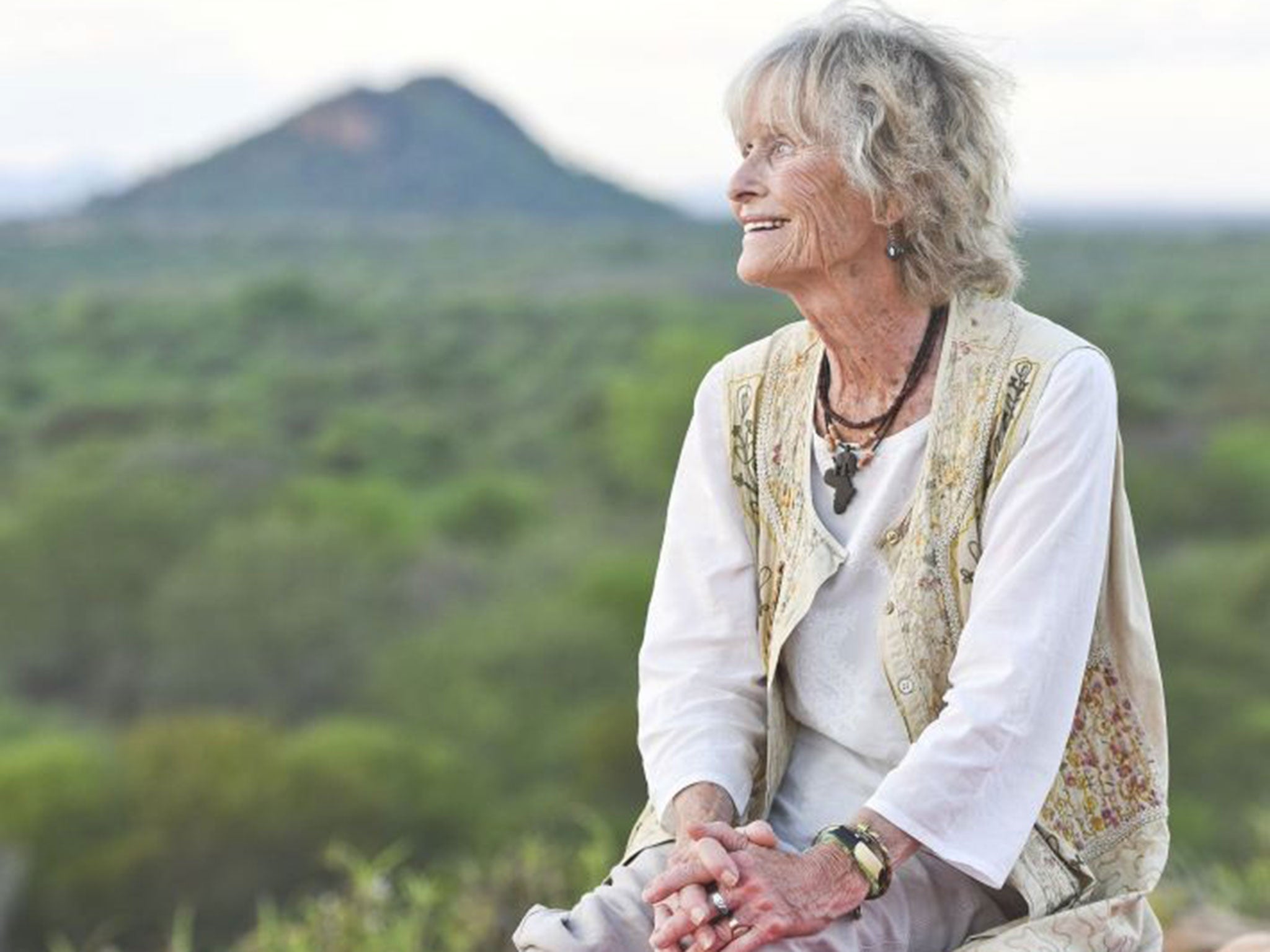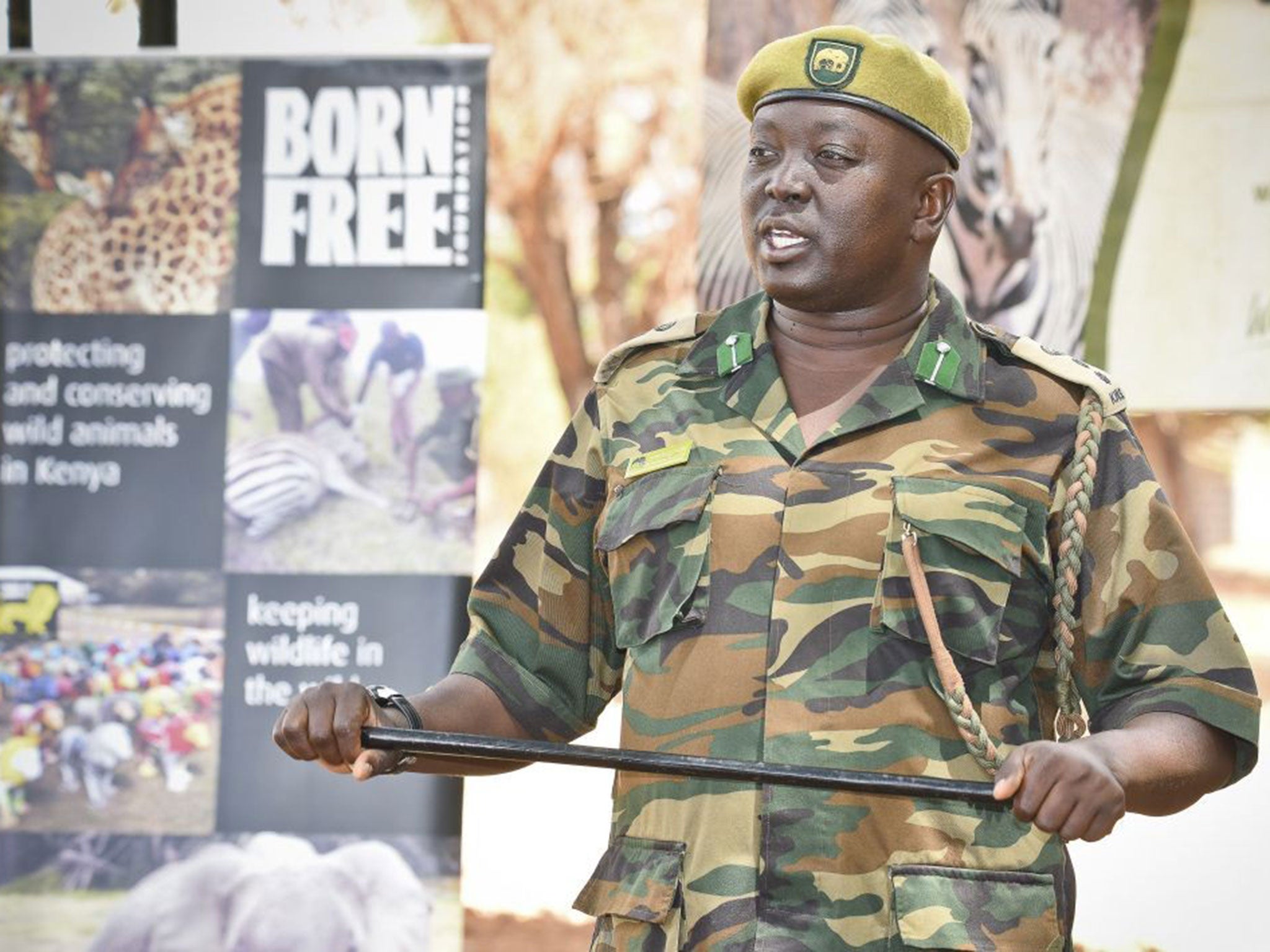Born Free Foundation outwits the poachers, crusading to remove snares in Kenya
Virginia McKenna's legendary wildlife charity marks its 30th anniversary with a new scheme in Kenya, as she explains to Jamie Merrill

Your support helps us to tell the story
From reproductive rights to climate change to Big Tech, The Independent is on the ground when the story is developing. Whether it's investigating the financials of Elon Musk's pro-Trump PAC or producing our latest documentary, 'The A Word', which shines a light on the American women fighting for reproductive rights, we know how important it is to parse out the facts from the messaging.
At such a critical moment in US history, we need reporters on the ground. Your donation allows us to keep sending journalists to speak to both sides of the story.
The Independent is trusted by Americans across the entire political spectrum. And unlike many other quality news outlets, we choose not to lock Americans out of our reporting and analysis with paywalls. We believe quality journalism should be available to everyone, paid for by those who can afford it.
Your support makes all the difference.The stench of flesh rotting under the hot African sun hits before it reveals itself as a carcass and sun-bleached bones of a dead giraffe.
A closer inspection of the rotting remains reveals the metal snare. The animal has been poached, and lies forlornly at the bottom of a dried-out riverbed in the heart of Kenya’s Meru National Park.
Caught by a simple looped piece of wire, it most likely struggled itself to death before the hyenas came. The two-year-old creature the latest victim of a wave of bushmeat poaching that is “destroying the food chain” for lions and big game in the region.
Standing nearby is the actress and wildlife campaigner Virginia McKenna. Aged 83, she is in Meru on the 30th anniversary of the creation of the Born Free Foundation to launch a new anti-poaching scheme.
Located in central Kenya, north of Nairobi, Meru is lion country, and it is here George and Joy Adamson raised and released Elsa, a story retold in the book and film Born Free. Now the foundation is working in the area.
McKenna is unusually quiet for a woman who normally speaks so passionately. This is not the first dead animal she has seen and she takes herself away from the scrum around the carcass.
She’s here to launch the scheme, run in co-operation with the Kenyan Wildlife Service (KWS) and Land Rover, which has provided two Defender off-road vehicles as well as funding for vital equipment for monitoring wildlife.
“There couldn’t be a better way of protecting individual animals, which is central to what Born Free has always stood for, than helping to remove these snares,” said McKenna as we leave. “It’s a project in harmony of what we do because here in Meru, everything is connected.” She still has an active role in the charity, despite most of the work being done by her son Will Travers.

Most animals caught by snares in Meru are smaller game. Born Free supports the scheme to protect the food source the park’s big game relies on. Big-game poaching for lion paws for China and rhino horn isn’t the only threat here.
It’s clear how big the challenge is in an area twice the size of the Isle of Wight, with poor-quality roads and 13 rivers cutting across it. Until the 1980s it had been a showcase of environmental diversity, before poachers invaded, slaughtered up to 90 per cent of the elephants and decimated the lion population. Now it’s recovering with a population of 75 rhinos, countless elephants and giraffes, as well as up to 50 lions. With only 20,000 lions left in Africa, the park is now a refuge for the species.
Most bushmeat poaching – which often catches larger game – is carried out by poor communities on the edge of the park struggling to make a living on barren farmland. In Meru, this challenge is faced primarily by Captain Kenneth Ochieng, the KWS senior warden.
His 200-strong team will now use new GPS equipment and surveillance gear provided by the charity’s £80,000-a-year scheme against snare poaching, which will involve Born Free removal teams heading out into the bush in hunt of the deadly wire.
He said: “The notorious poachers are among us, in our communities, so we have been working to engage with the local community and gather intelligence. To date, we have been able to profile the gangs and use that information to go out and warn them of the consequences of what they are doing.”

He believes local farmers start out illegally grazing animals on the rich grassland in the park, before turning to bushmeat poaching before “graduating” to big game for gangs with international links.
It’s a lucrative business, with an antelope or giraffe bringing in about $300 in local markets. The risks are high, though: in January, his security team, which is unconnected with Born Free’s teams on the ground, sprung an “ambush” and “neutralised” a gang of poachers after a rare white rhino was shot with an AK-47 assault rifle. The rhino recovered, but two poachers were killed and several others injured. They were after rhino horn, which would have been worth $1,500 per kilogram if they had been successful.
The Born Free project, run by Kenyan Born Free employee Victor Mutumah, has already removed hundreds of snares. He said: “We work closely with the KWS; they are the right and proper custodians of our wildlife. And community outreach is vital to what we do, as we know we won’t succeed without engaging the people who live on the borders of the park. If we were only concerned with people, this would be a losing battle.”
Will Travers says Born Free knows that working with the local agencies is crucial. “This isn’t my wildlife,” he said. “It belongs to the Kenyan people and we need to work toward a sustainable future for when I am not around. That’s why we dress soft, speak soft and work with the KWS and local communities.”
Travers adds that the support from Land Rover is crucial in the project. For the British firm, which has a long-established connection with off-roading in Africa, it is part of a broader commitment to provide more than a dozen vehicles to the charity for conservation projects in Kenya, as well as Ethiopia, South Africa and Malawi.

After a bumpy ride along dusty red dirt roads and back at camp, McKenna is less closed than at the poaching site, and the passion she is known for shines through. After 30 years of campaigning and countless trips to Africa and around the world, her two main issues remain the same: zoos and wild animals in circuses.
On the former, she admits she “would desperately love to see London Zoo close”, but knows it is unlikely in her lifetime. For the former, there’s a real sense of disappointment over David Cameron’s failure to ban circus wild animals. “It’s archaic. The current government promised to ban it and they haven’t. In the scheme of things it would be a peanut for them to crack,” she said.
Real anger, though, is reserved for a body far from the poverty-stricken bushmeat poachers of Meru – London Zoo, which last year spent £3.6m on a new tiger enclosure for two animals. She said: “I dream of what the team at the KWS could do with that sort of money. I’ve seen parks in Africa where the wardens have to get around on bicycles. The way we spend our money on conservation is frankly disproportionate and totally insulting if we want to preserve nature in the wild.”
The dead giraffe was killed by a snare cut from the park’s own perimeter fence, by poachers who travelled in from the outside avoiding KWS patrols and Born Free Snare removal teams.
“You can’t conserve in isolation in a place like this where there is such poverty,” adds McKenna. “You have to bring the community with you.” In Meru it seems the threat to wildlife lies outside the fence, but as far as McKenna and Born Free are concerned, so does the solution.
Join our commenting forum
Join thought-provoking conversations, follow other Independent readers and see their replies
Comments